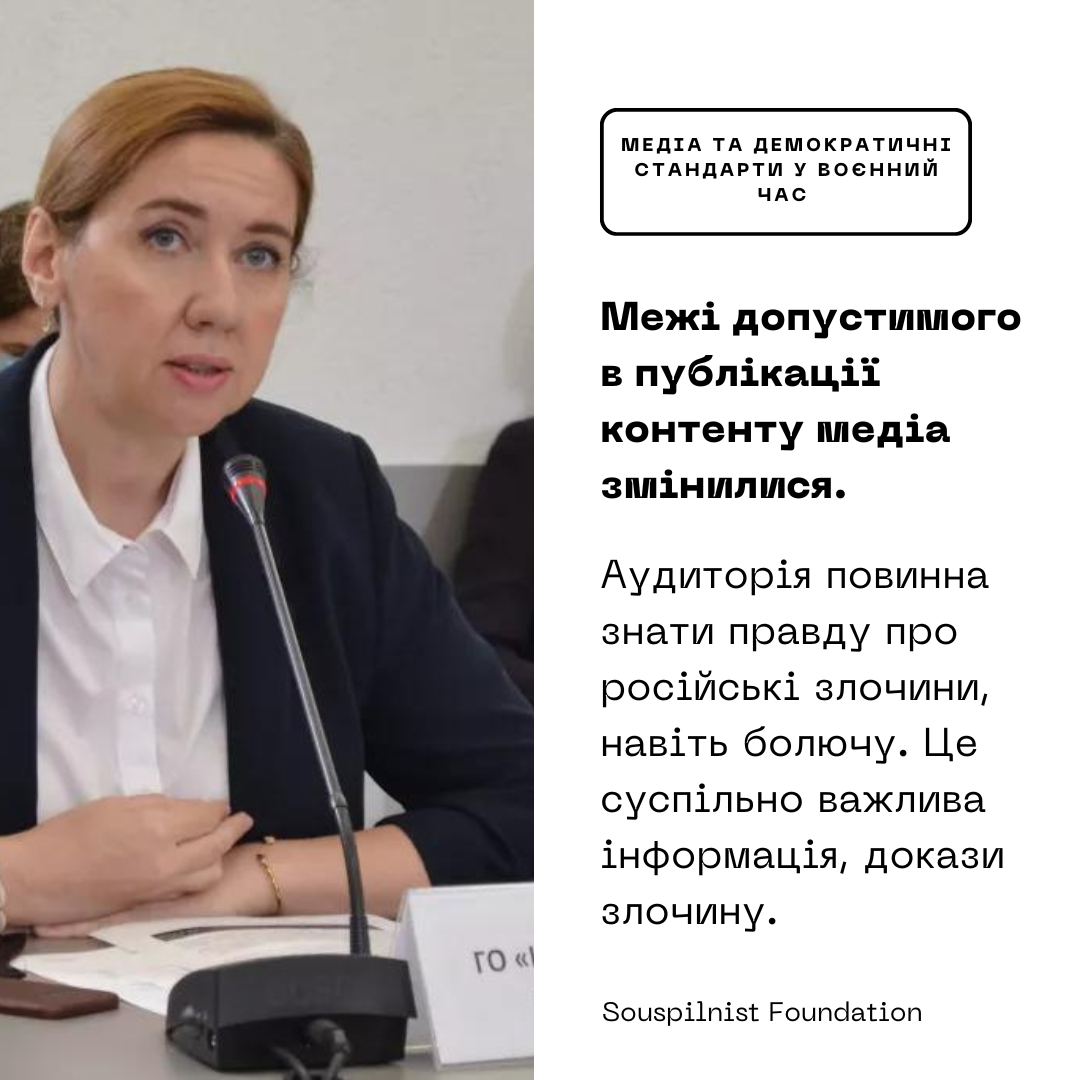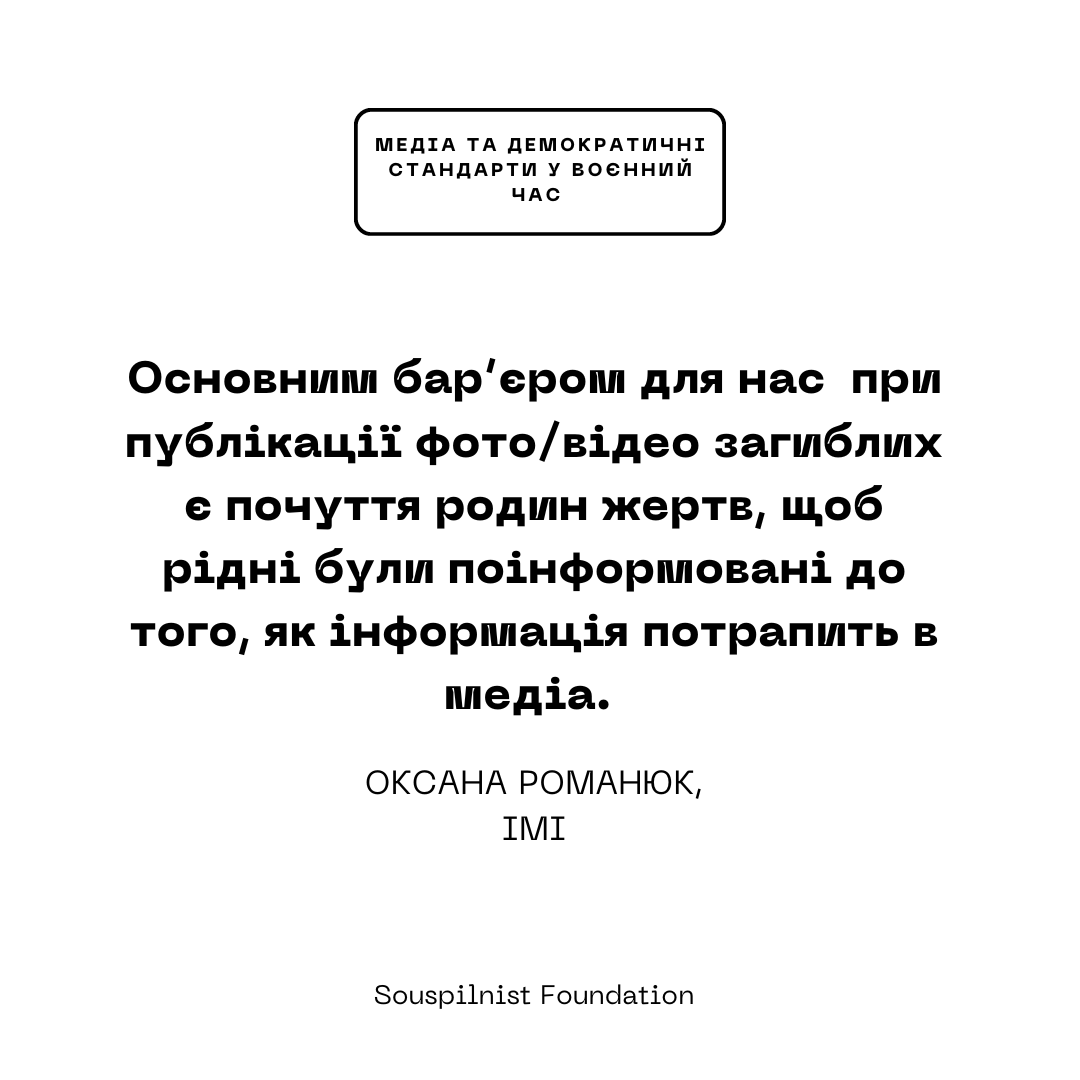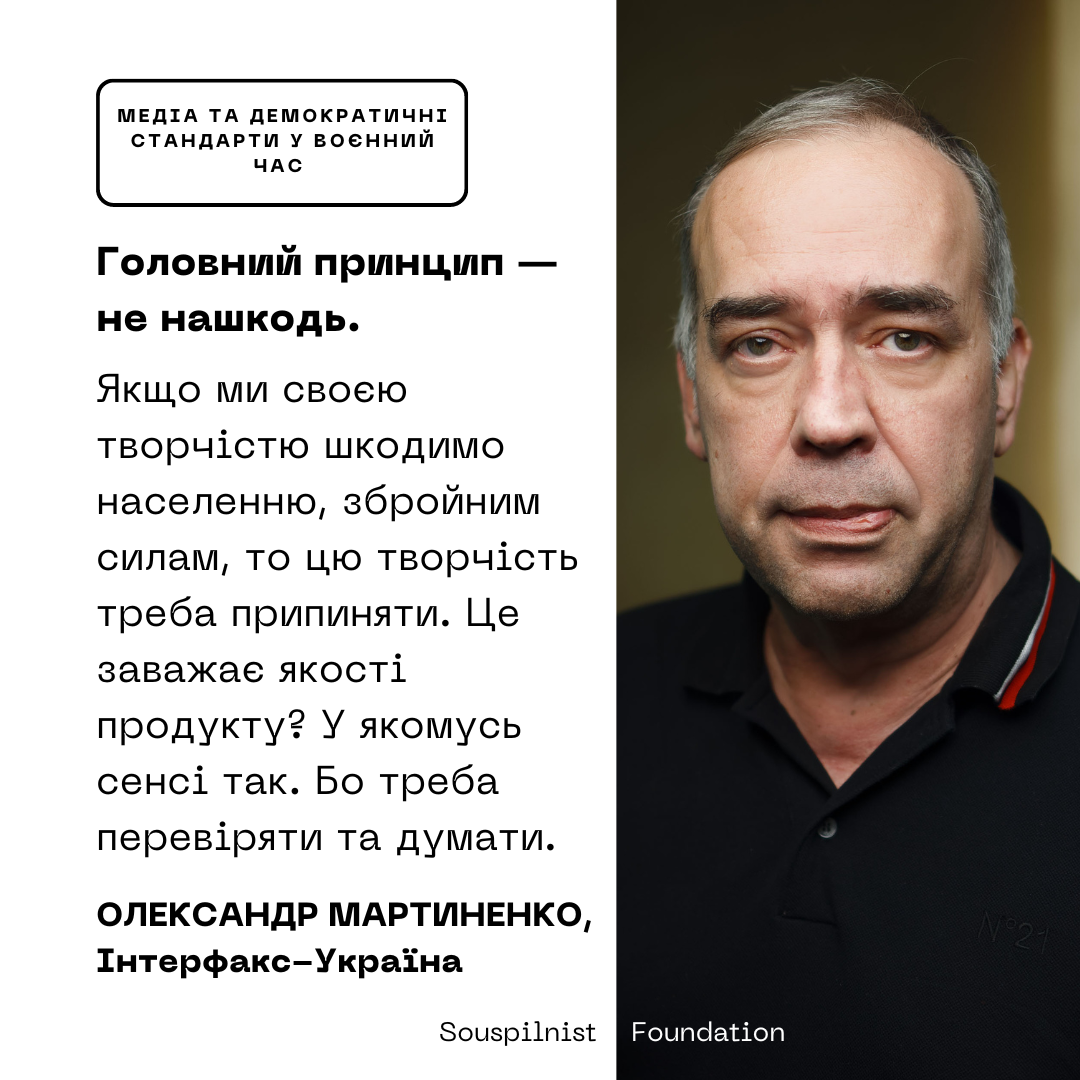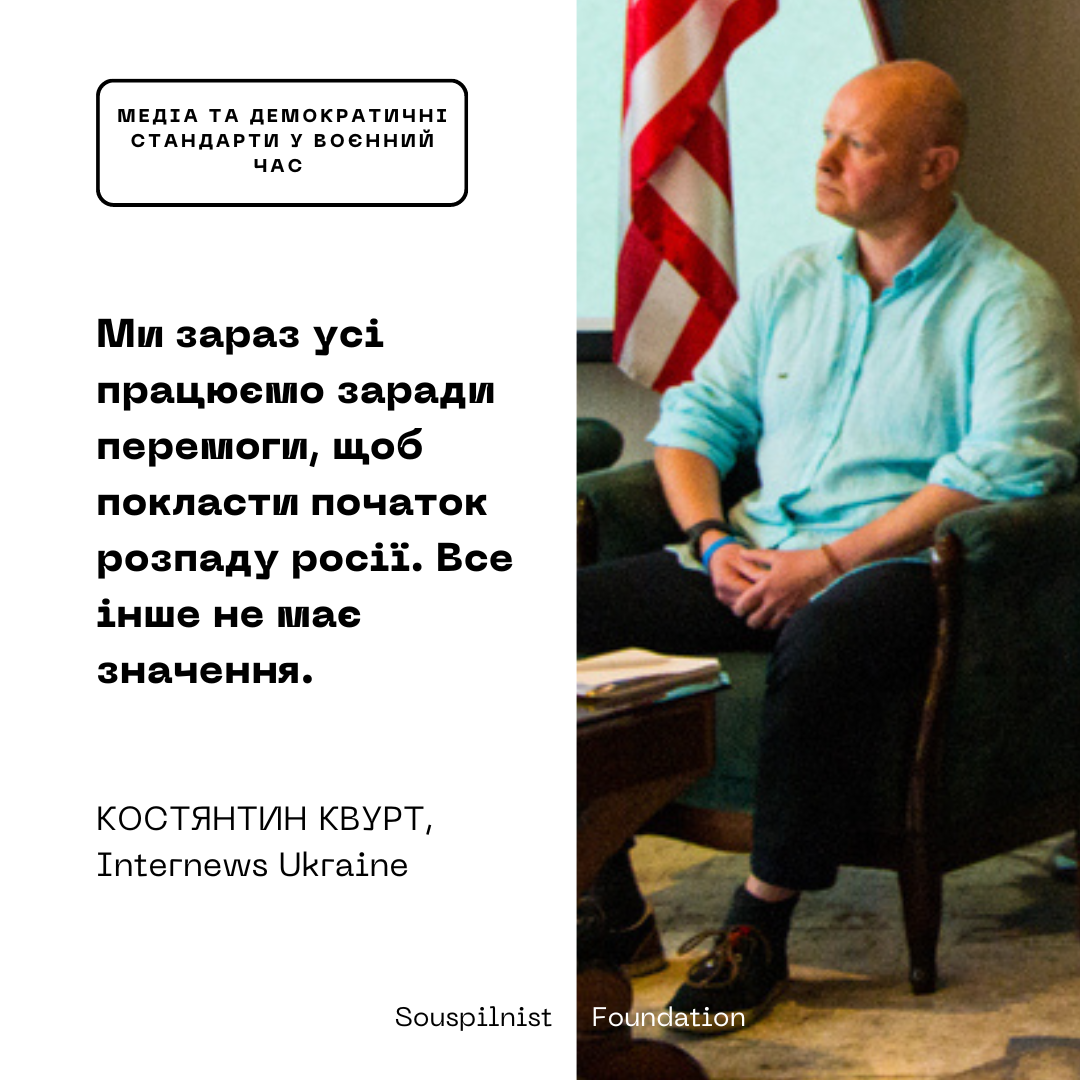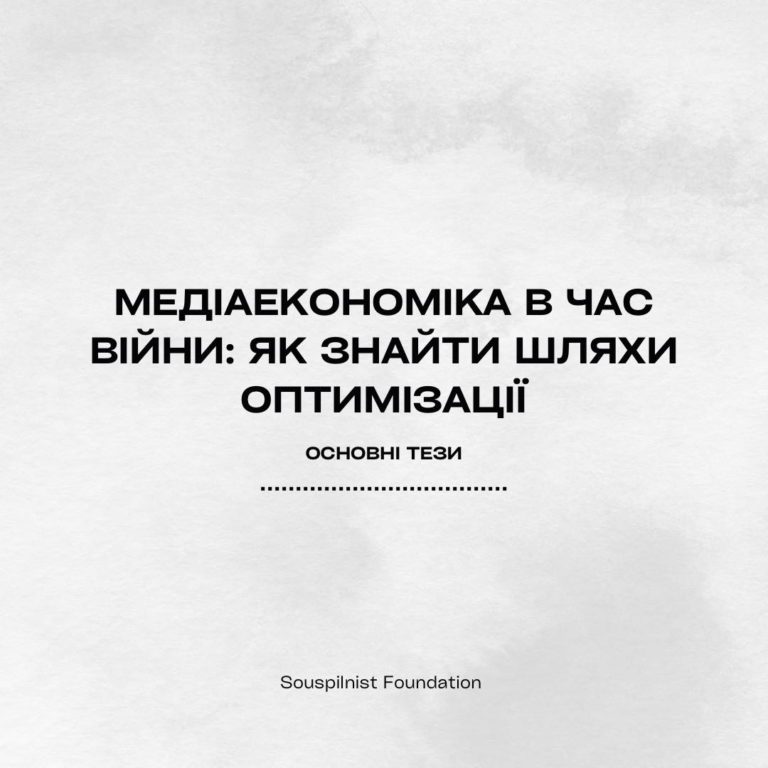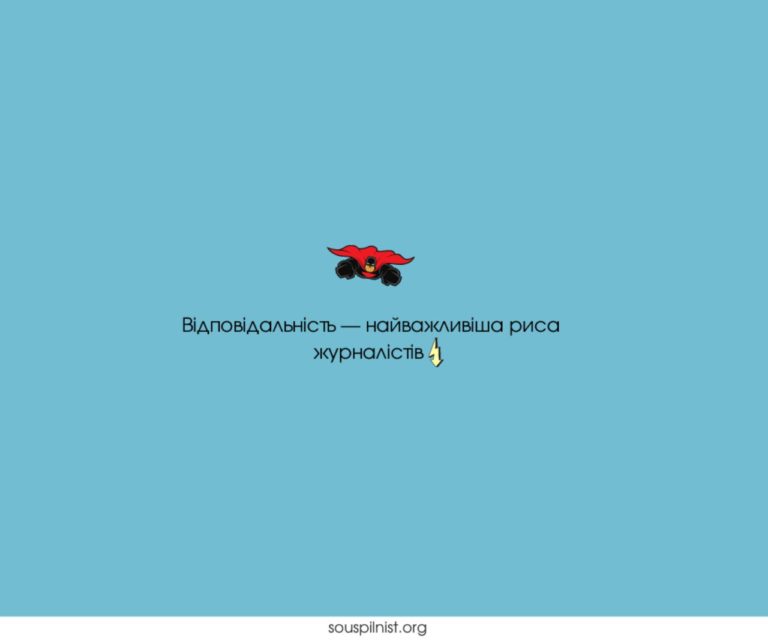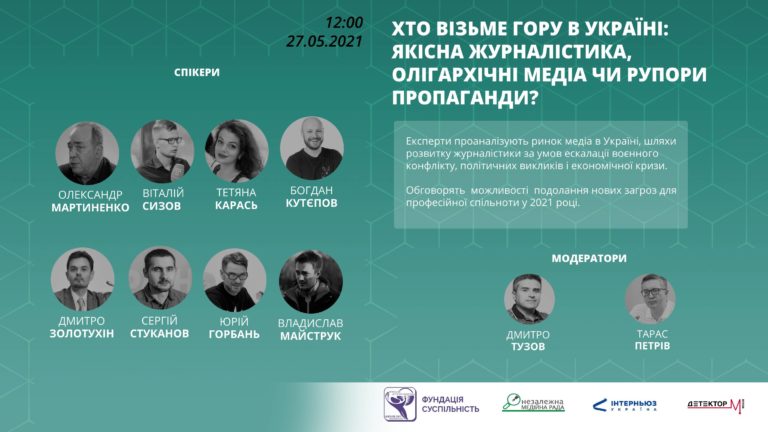Traditional journalistic standards are adjusting to the new wartime reality.
How to remain professional under the new circumstances was discussed on September 20 during the online expert discussion, “Media and democratic values in wartime.”
The speakers were Oleksandr Martynenko, director general of the Interfax Ukraine news agency; Oksana Romaniuk, executive director of IMI; Nataliia Sokolenko, host at Ukrainian Radio; Anhelina Kariakina, general producer at UA:PBC; Nataliia Lihachova, editor-in-chief of the Detector Media group of publications; Kostiantyn Kvurt, chairman of the board of Internews Ukraine; and Oleh Baturin, journalist of the Kherson newspaper Novyi Den and author at the IA Center for Journalistic Investigations.
Oksana Romaniuk noted the transformation of the Ukrainian media’s approach to interpreting the degrees of ethics and acceptability when publishing sensitive content.
The expert said that, for example, publishing photos showing the consequences of russian military aggression on Ukraine’s territory could hurt people’s feelings from the point of view of ethical standards. Under normal conditions, Oksana Romaniuk would defend the importance of blurring photos or not publishing them. But now, the publication of photographs, in particular those showing mass burials, makes it possible to document the crimes committed by russia and inform the whole world about them:
The audience must know the truth about russian crimes, even if it’s painful. That’s socially salient information, evidence of a crime. The main barrier for us when publishing photos/videos of the deceased are the feelings of the victims’ families so that the relatives are informed before the information gets into the media.
Media experts agreed that it is necessary to tag sensitive pieces to avoid losing sensitivity.
Oleksandr Martynenko noted the importance of understanding that Ukrainian journalists are not observers in the war but representatives of the warring party. Therefore, the media cannot operate according to traditional Western journalism principles, primarily for national security reasons.
The main rule is to do no harm.
If we harm the population and the armed forces with our creativity, then this creativity must be stopped. Does it affect the quality of the product? In a way, yes, because you have to double-check and think.
Anhelina Kariakina followed up with Oleksandr Martynenko’s opinion saying that Ukrainian media outlets are currently operating under military censorship, with a lack of precise regulation. The rules must be improved.
Also, Anhelina Kariakina touched on three more important and challenging topics:
- The standards of promptness and the balance of opinions are currently not observed by Ukrainian media, but this does not affect the journalists’ professionalism:
The standards of promptness and balance have changed. We don’t balance news from Ukraine with news from russia. But we don’t ignore the news from russia’s defense ministry either since it’s a source of information, albeit propagandistic and manipulative. Unfortunately, not all broadcasters know how to work with it correctly.
- Not all people covering russia’s war in Ukraine are aware of the limits of ethics and can work with complex topics. It is essential to educate people, give them time to rest, and continue developing self-regulation efforts in the media sphere;
- it is not completely clear at the moment how to work with the territories occupied eight years ago and after the beginning of russia’s full-scale invasion of Ukraine. The expert suggested holding a discussion to analyze possible challenges when working in the de-occupied territories to develop standards.
Oleh Baturin continued the topic of working in the de-occupied territories. The journalist noted the need to create Ukrainian-language content and understand how people in the occupied territories can get information (e.g., in the temporarily occupied Kherson region, the Internet is provided by russian providers).
I see that people need Ukrainian-language content. Many of my acquaintances and neighbors, who’ve always been russian-speaking, trust more and look for Ukrainian-language information. That’s also an element of trust for them, and they’ve already got too much russian-language content.
Kostiantyn Kvurt, Nataliia Sokolenko, and Nataliia Lihachova also addressed the issue of increasing the quantity and quality of content.
In particular, Nataliia Lihachova drew attention to violations of journalistic standards on-air of the united news telethon.
They seem to be carried away with propaganda in the marathon. They don’t prepare journalists working in the field for a complex reality, requiring a simplified reality from them. This represents a great danger. Not only are the Journalists not ready: it looks like the management of united news wants them not to be ready. They want to create a two-dimensional reality for the viewers.
Detector Media has been monitoring violations of standards for half a year. Therefore, Nataliia Lihachova proposed holding a meeting of media organizations’ representatives with the telethon’s management.
We’re now all working for victory to start the disintegration of russia. Everything else doesn’t matter, concluded Kostiantyn Kvurt.
Souspilnist Foundation organized the event with the support of Internews Ukraine, Detector Media, and the Independent Media Council.
